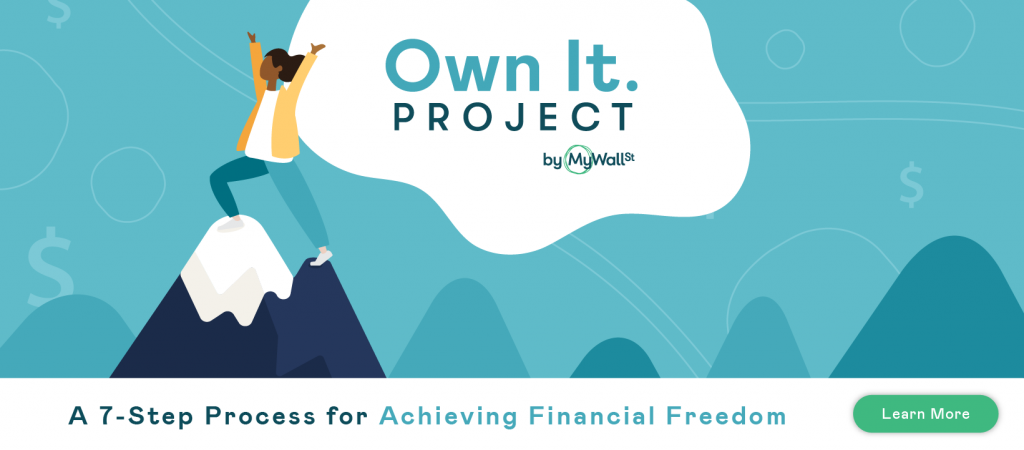Investors Need To Avoid This Mistake During Earnings Season
Join thousands of savvy investors and get:
- Weekly Stock Picks: Handpicked from 60,000 global options.
- Ten Must-Have Stocks: Essential picks to hold until 2034.
- Exclusive Stock Library: In-depth analysis of 60 top stocks.
- Proven Success: 10-year track record of outperforming the market.
There isn't an investor alive who isn't guilty of reactive investing in some way, shape, or form. I myself have been guilty of such feats when I sold my Slack (NYSE: WORK) shares after a bad quarter last year in a move I regret to this day. I have learned from my mistakes, but not everyone has the resources I do to teach themselves. I have seen people on Twitter (NYSE: TWTR) and Reddit who have already sold shares in Microsoft (NASDAQ: MSFT) and Coca-Cola (NYSE: KO) this week because of their earnings. These people did not have a long-term mindset and instead just read reports online about 'missed earnings targets' and 'declining revenue growth'.
Putting too much emphasis on quarterly earnings can be a huge mistake if it drives you to selling shares unnecessarily, and only contributes to market volatility.
The case of coronavirus
There are those who believe that quarterly reports should be done away with altogether, but that's an argument for another time. Instead -- though I am no fan myself -- I will concede that quarterly reports do offer investors some semblance of normality in a stock market ravaged by COVID-19.
Back in April/May when companies were reporting on Q1, the opposite could be said as analysts were forced to 'fly blind', as it were, with many companies scrapping guidance altogether. Less than half of the usual number of S&P 500 (NYSEARCA: VOO) companies gave guidance, including some of the biggest names such as Mastercard (NYSE: MA), Apple (NASDAQ: AAPL), and Disney (NYSE: DIS). This was simply because the pandemic lockdown was unprecedented and nobody knew how bad the damage would be.
Now, however, companies appear to be reporting guidance once more, with Tesla (NASDAQ: TSLA) and iRobot (NASDAQ: IRBT) offering investors an insight into the upcoming months. This allows analysts and investors alike to 'get back on track' with the company and manage expectations at a time of such uncertainty. However, with a resurgence in cases across the U.S. once more, uncertainty is growing, leading us to the argument against earnings.
The case against quarterly reports
This is a rabbit hole that goes too deep for me, and it's too early, so let's keep it simple:
1. They discourage long-term thinking
As mentioned before, it's painful to see people selling positions in great companies just because they had a less-than-stellar quarter. Newsflash: We're in a pandemic, everyone's having a bad time right now, even if it's not on the books.
What's more, wealth generation through investing takes patience. Take Berkshire Hathaway (NYSE: BRK.A)(NYSE: BRK.B) CEO Warren Buffett who became a millionaire in 1961, a billionaire in 1990, and is now worth circa $70 billion. For example, if you buy shares in Netflix (NASDAQ: NFLX) with a plan to hold for 20 years, and it has a bad quarter, that's only 1.25% of the total time you will hold the stock for. In a similar timeframe, Netflix stock actually managed to grow roughly 20,000% including stock splits, and they had plenty of bad quarters.

2. They are not indicative of a companies' overall potential
This relates directly to the current coronavirus situation, but let's assume (hope) that this virus won't be around forever. Chipotle Mexican Grill (NASDAQ: CMG) reported a more than 4% dip in sales in Q2 because its restaurants had closed, and a scarier 90% drop in net income year-on-year. Is this unfortunate? Yes. Will this always be the case? No, because (hopefully) this virus will not dictate our lives forever, and Chipotle will still be the same company that has grown more than 5,000% since going public in 2006.
3. They don't affect the market
While a quarterly report can cause individual stock volatility, research has shown that they have no effect when compared with the benchmark S&P 500 index. So, if even the market doesn't care about earnings, why should investors?
Play the long game
No doubt many of you will be glued to Intel's (NASDAQ: INTC) Q2 results from last night, or Amazon's (NASDAQ: AMZN) next week, but had they reported a disastrous quarter and fallen 20% I would not have sold, just as I wouldn't if the opposite were true. In the end, I am in it for the long haul with Amazon and the rest of the stocks in my portfolio.
This strategy is the backbone of the MyWallSt(r) ethos, and it's worked out pretty well so far. Don't believe me? Just check out our returns below.
MyWallSt operates a full disclosure policy. MyWallSt staff currently hold long positions in companies above. Read our full disclosure policy here.
- Weekly Stock Picks: Handpicked from 60,000 global options.
- Ten Must-Have Stocks: Essential picks to hold until 2034.
- Exclusive Stock Library: In-depth analysis of 60 top stocks.
- Proven Success: 10-year track record of outperforming the market.
